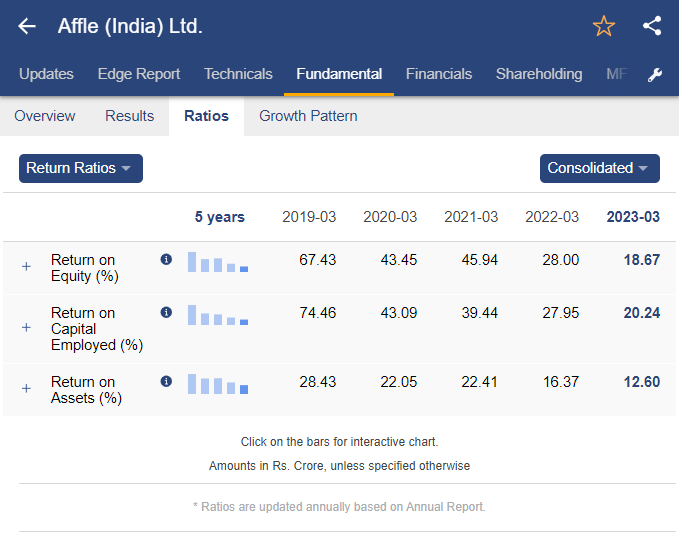To ensure the success of AI trading it is crucial to focus on managing risk. This is especially true in high-risk stock markets like the penny stocks or cryptos. Here are ten tips on how you can incorporate effective risk-management practices into your AI trading strategy:
1. Define Risk Tolerance
Tips – Set a specific limit on the acceptable loss for each trade, per day and for the entire portfolio.
You can set your AI trading system’s parameters precisely, by knowing your risk threshold.
2. Automated Stop-Loss and Take Profit Orders
Tip: Use AI for dynamically adjusting stop-loss levels and take-profit levels based on the volatility of the market.
What is the reason? Automated safeguards limit potential losses, and lock in profits without causing emotional stress.
3. Diversify Your Portfolio
You can spread your investment across many asset classes, markets and industries.
The reason: When diversifying your portfolio, you will reduce the risk to risk that comes with one particular asset. This will help to balance possible gains and losses.
4. Set Position Sizing Rules
Tip Use AI to calculate size of positions based on:
Portfolio size.
The risk per trade (1-2% of portfolio value)
Asset volatility.
Reason: Properly sized positions ensures that you are not exposed to high-risk trading.
5. Monitor Variability and Adjust Strategies
You can use indicators like VIX, or data from onchain for assessing the market volatility.
Why: Higher volatility demands tighter risk control and adaptive strategies.
6. Backtest Risk Management Rules
Include risk management variables like stop-loss and position sizes in backtests to evaluate.
What is the purpose of testing? Testing will ensure that your risk measures are viable in the various market conditions.
7. Implement Risk-Reward Ratios
Tip – Make sure that each trade is based on an investment risk/reward ratio of 1:13 or higher (risking $1 to make $3).
What’s the reason? Consistently making use of favorable ratios can increase long-term profit, despite occasionally incurred losses.
8. AI Detects and Responds Anomalies
Create software for anomaly detection to identify unusual trading patterns.
The importance of early detection is that it gives you the opportunity to adjust or exit your trading positions prior to significant market movements.
9. Hedging Strategies – Incorporate them into your company
TIP: Use hedge techniques like options or futures to reduce the risk.
The penny stocks are hedged using ETFs in the same sector or similar assets.
Use stablecoins for copyright to protect your investment portfolio. You can also use them to inverted exchange-traded funds.
How can you hedge against price fluctuations?
10. Continuously monitor and adjust Risk Parameters
Make sure you update your AI trading system’s risk settings to reflect the changing market conditions.
Why: Dynamic risk-management ensures your strategy remains relevant for different market situations.
Bonus: Use Risk Assessment Metrics
Tip: Evaluate your strategy using metrics like:
Max Drawdown: Largest portfolio loss from peak to trough.
Sharpe Ratio: Risk-adjusted return.
Win-Loss Ratio: Number of profitable trades versus losses.
These numbers will give you a better idea of the risk and reward associated with your strategy.
Implementing these strategies will help you develop a risk management strategy which will increase the efficiency and security of your AI trading strategies in penny stocks and copyright market. Check out the top rated your input here for ai stock trading bot free for more examples including best copyright prediction site, ai stock, ai copyright prediction, best copyright prediction site, ai stock, ai for trading, ai stock trading bot free, best ai copyright prediction, ai trading, stock market ai and more.

Top 10 Tips For Ai Stock Investors And Stock Pickers To Concentrate On Diversification Of Portfolio
Diversification of portfolios is vital for minimizing risks and maximising long-term returns. This is particularly true when AI technology is being used to forecast future events and to invest in stocks. AI can be utilized to discover and exploit opportunities for diversification in sectors, asset classes as well as individual stocks. Here are 10 tips to help you focus on diversification of your portfolio using AI-driven strategies.
1. Make use of AI to optimize Asset Allocation
Tip. Make use of AI models based off the past and current data as well as risk preferences to determine the best allocation of bonds, stocks and other alternative investment options.
The reason: AI allows you to dynamically allocate your capital across different asset classes. This ensures that your portfolio remains diversified and reduces the impact of fluctuation on your returns.
2. Diversify across different sectors and Industries
Tips Share your risk across different market segments including healthcare, technology, and consumer items.
The reason: Industry and sector diversification will allow your portfolio to weather the downturn while gaining from growth in other sectors. AI can detect trends and anticipate future sector rotations, leading to better investment choices.
3. AI will help you find assets that are not related to each other
Tips: Use AI to select and identify assets that are not as correlated, thus reducing the overall risk of your portfolio.
The reason: AI helps balance risk and reward by focusing on assets with low or positive correlations. Certain assets are more likely to react to market events at the same time, stabilizing the portfolio.
4. Include International as well as Emerging Market Assets
Tips: To improve geographical diversification, you can use AI to mix shares from emerging markets and international markets.
How do different regions respond differently to economic trends. The incorporation of international stocks, particularly from emerging markets, allows exposure to the global economy and reduces risk tied to local economic, geopolitical, or other issues.
5. AI Monitor and Refine Your Portfolio On A Regular Basis
Tip: Use AI to keep track of your investment portfolio and make adjustments to it according to changes in market conditions.
Why: Markets are dynamic, and continuous AI monitoring will ensure that your portfolio remains diversified and optimized in line with the most recent data. This will help you adapt to shifts in the market’s sentiments and economic trends.
6. Implement Factor Investments using AI
Tip: Implement factors-based strategies for investing (e.g. value, growth momentum, quality, and size) using AI to diversify your portfolio risk in accordance with various variables.
The reason: AI examines huge datasets to determine factors’ performance. This allows you to create an investment portfolio that has an array of styles and factors.
7. Make use of AI for risk-based Diversification
Tip: Use AI technology to identify the risk associated with each of your assets and then spread them out by investing in high risk and low-risk assets.
What is the reason: AI helps identify assets which are less volatile and those with high returns but higher risks. Make sure to balance these risk profiles across your portfolio to maximize profits and minimize losses.
8. Include other assets in your portfolio
Tip. Use AI to find investment opportunities that are not traditional.
Why: Alternative instruments behave differently from traditional stocks and bonds. They add an extra layer of diversification. AI can analyze and predict trends on these markets to ensure you make informed choices when you add them to your portfolio.
9. AI Simulation of Stress Tests & Scenario Analysis
TIP: Make use of AI-driven simulations and stress tests to assess how your portfolio would perform under the most extreme market conditions, or in hypothetical scenarios (e.g., market crashes, economic recessions).
What is the reason? AI can be used to test the stress of your portfolio and identify weak points.
10. The Balance of Short-Term and Long-Term Investments
Tips: By using AI find a mixture of stocks expected to rise over time as well as ones that offer short-term growth opportunities. This will allow you to make sure you are balancing your gains now against the stability of the long term.
Why: A portfolio that is diversified must include both stable long-term investments, as well as high-growth short-term opportunities. AI can track patterns and forecast patterns to help determine the assets or stocks that will likely to outperform in the short term, while ensuring the long-term growth of your portfolio.
Bonus: Continue to rebalance your bonus on AI insights
TIP: You can make use of AI to rebalance periodically your portfolio to ensure that it’s in line with your risk tolerance changes and the market conditions.
Why: Market fluctuations can affect your portfolio’s asset allocation to shift over time. AI helps to in rebalancing and diversifying your portfolio, as well as ensure it aligns with your goals.
Implementing these strategies, AI can help you create and maintain a well-diversified portfolio that is balanced between risk and returns while adjusting to market shifts. AI can process large amounts of data, create different market conditions and aid you in making better informed choices. Read the recommended stock market ai for website examples including ai stocks to buy, ai for stock market, ai stocks to buy, best ai stocks, ai stocks to invest in, ai stocks, stock market ai, ai stock trading, ai stock analysis, ai stocks and more.
